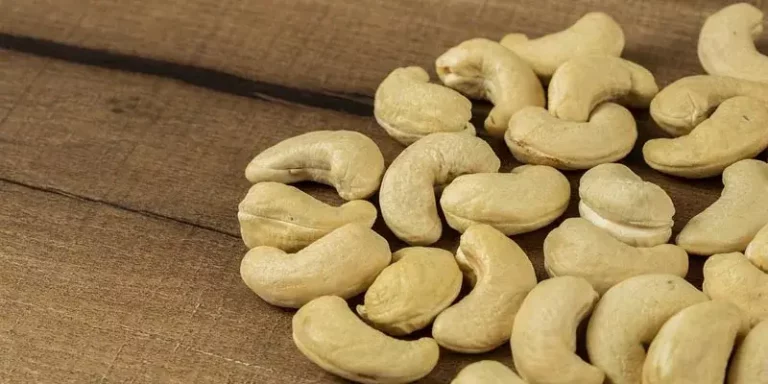Cashews are the quintessential snack food. They are delicious, crunchy, healthy, and versatile. However, they are also one of the most sensitive foods when it comes to quality.
Do Cashews Go Bad?
There are many myths associated with the shelf life of cashews. Some say they never go bad, some say they will remain good for about 3 months, and others say they will last for up to 1 year.
The answer to whether or not cashews go bad is that it depends on the storage temperature and type of cashew.
How Long Does Cashew Last
It’s not clear how long the shelf life of cashews is, but there are some factors that influence it. These include storage temperature, humidity, manufacturing process, and packaging.
Most cashews are typically shelf-stable for a year, but their shelf life varies. Cashews are typically processed with salt and other chemicals to ensure they last long. Also, the lifespan of cashews depends on the type of jar or can that they are kept in.
Cashews last for a little less than two months if stored at room temperature if it’s stored in an airtight container
If they are stored in the refrigerator, they can last for up to 9 months.
In the freezer, they can last up to 1 year.
How to Tell If Cashews Are Bad?
Cashews are one of the most delicious nuts which can be used in many ways. However, there are some signs that the cashew may be spoiled or bad.
The most obvious signs would be that it has an off smell.
The flavor is also a good indicator with rotten-flavored cashew being a clear sign of spoilage.
It would also make sense to note if they have been sitting around for too long with mold growing on them and the shells becoming soft. If there is mold on them, they should not be eaten at all.
How to Store Cashews
Cashews are a common snack that many people love. But, storing them properly is a little tricky. Luckily, there are some easy ways to store cashews.
Cashew Storage Guidelines:
- Cashews should be stored in the refrigerator or freezer section of your pantry or home.
- Pack them tightly in an airtight container to prevent moisture from getting into the container and ruining the cashews.
- If you’re going to use a vacuum sealer, put a piece of parchment paper on top of the nuts before sealing them in order to avoid any sticking.
- When storing cashews, it is important to keep them away from other foods to avoid rancidity. You are also advised to use jars or cans with wide mouths for better storage.
How To Keep Cashews Fresh Longer
Cashews can go stale easily and that can be a problem for those who love cashews and want to enjoy them as soon as possible. This is because they contain a lot of oil and must be stored in an airtight container, where they won’t get stale. The following are the best ways to keep your cashews fresh:
- Store them in an airtight container
- Do not store them with other nuts like peanuts or almonds
- Do not store them with grains like oats or rice, which can attract moisture and cause the cashew to go bad
- Cashews should be stored in a dry, cool place, away from sunlight or humidity levels above 80%
Related Questions
Can you eat expired cashews?
Even though expired food is no longer safe for consumption, you can still eat cashews if they are properly sealed.
Although it might not be the best idea to do so. Once the cashews become rancid, they won’t make you sick right away. However, it can cause long-term harmful effects on the digestive system and other parts of the body.
Why do my cashews have brown spots?
Cashews have a natural oil that gives them their distinctive color. Just like onions, potatoes, and other food products, cashews can be stored for a long time without refrigeration. Unlike these food products, however, cashews typically have large brown spots on them.
The brown spots on cashews are caused by the presence of a natural oil called P-anisic acid. It is formed from the compound cashew oil methyl ester which is produced when the raw nut is crushed to extract its oil. The presence of this acid may also be due to poor storage conditions or improper packaging that allowed air into the package and oxidized the oils.

